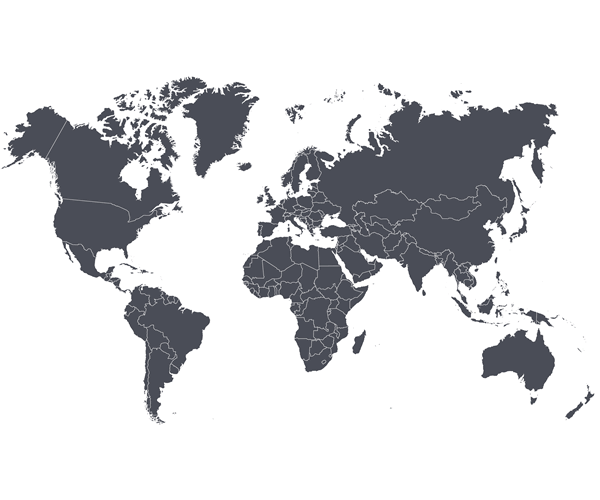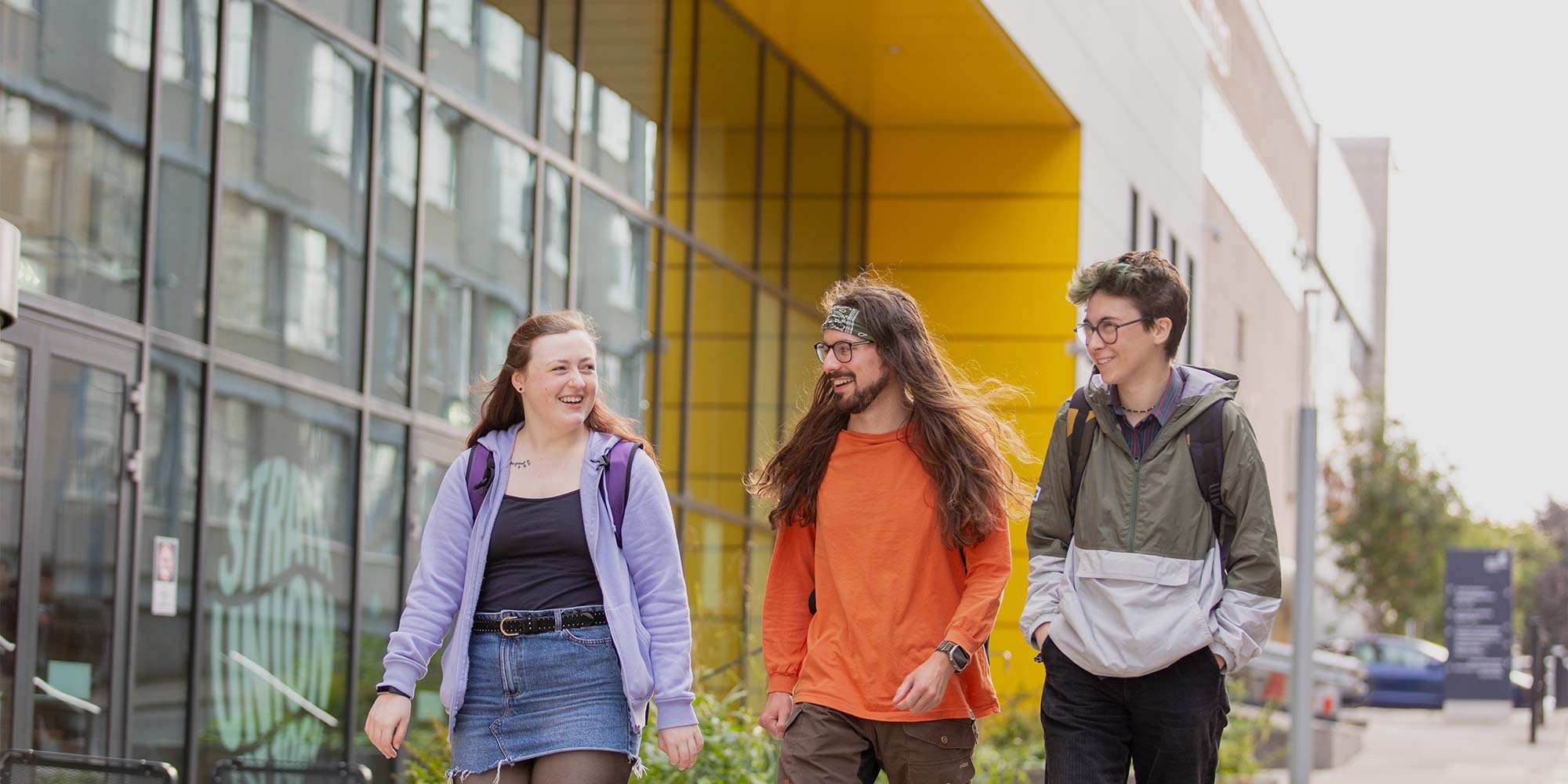MSc Advanced Mechanical Engineering with Energy Systems
ApplyKey facts
- Start date: January & September
- Accreditation: Institution of Mechanical Engineers and provides a route for Chartered Engineer (CEng) status
- Study mode and duration: MSc: 12 months full-time; up to 36 months part-time (September start only)
Careers: The Department of Mechanical & Aerospace Engineering is targeted for graduate recruitment by over 60 companies
Study with us
- develop in-depth technical understanding of advanced mechanical topics
- gain skills in project management and risk analysis
- choice of specialist pathways to widen career opportunities
Why this course?
The course will develop your knowledge and skills in the area of energy systems.
It's been developed to enable you to become a specialist in the area of energy systems. You'll also have the opportunity to take modules in general skills such as project management and risk analysis. These are necessary skills for any professional aerospace engineer.
It provides high-calibre mechanical engineering graduates with an in-depth technical understanding of advanced mechanical engineering topics together with generic skills that will allow them to contribute effectively in their future roles.
Accreditation
This course is accredited by the Institution of Mechanical Engineers (IMechE) and provides a route for you to achieve Chartered Engineer status.


What you'll study
You'll complete a selection of taught compulsory and optional modules designed to give you the advanced expertise, knowledge, and professional engineering skills needed to build a successful career in the energy systems arena.
The modules are delivered over two semesters:
- Autumn Semester - September to January
- Spring Semester- January to May
Students who successfully pass all required compulsory and optional modules will progress to the MSc Project. The project, completed between May to August, involves in-depth study of a selected topic. This may be industry-themed or aligned to current energy systems research within the Department of Mechanical & Aerospace Engineering at Strathclyde.
Facilities
Our facilities include many laboratories and research centres including:
- Energy Systems Research Unit
- Future Air-Space Transportation Technology
- James Weir Fluids Laboratory
- Mechanics & Materials Research Centre
We have local-access to a 3500 node region supercomputer.
Professional Skills for Senior Engineers (10 credits)
Aims to develop students’ understanding and engagement with leadership, performance and purpose within an industrial context, building a crucial foundation upon with to build their future career as senior engineers and decision makers.
Research Methodology (10 credits)
Aims to equip students with the knowledge and skills necessary for proposing and undertaking a research project. The module will develop competencies required to research and critically review the literature within the academic environment, provide students with the skills and tools to present themselves and their work in a professional setting, and enable critical reflection of their performance within the principles of academic integrity.
Energy Resources & Policy (10 credits)
Against the background of international commitments on atmospheric emissions, diminishing fossil fuel resources, renewable energy systems deployment and the liberalisation of energy markets, this module examines sustainable options for energy production, supply and consumption. The aim is to give students an understanding of current trends in the energy market, and to enable a critical evaluation of emerging ideas, technologies and policies especially in relation to new and renewable energy supply systems.
Advanced Materials Processing & Manufacturing (10 credits)
This module aims to cover a range of advanced materials manufacturing techniques that are either widely used or emerging in industry. Techniques include Additive Layer Manufacturing, Electron Beam Welding, Superplastic Forming and advanced machining approaches. In addition, non-destructive evaluation techniques to ensure high levels of manufacturing integrity will be described. Sustainability, energy use and economic aspects will be explored through Life Cycle Analysis methodologies.
Advanced Topics in Fluid Systems Engineering (10 credits)
Complex fluid flow and heat transfer problems are central to many advanced fluid engineering systems often at the cutting-edge of modern engineering. These include human biological flows, multiphase flows, micro- and nano- scale flows. In all of these our physical understanding is limited, which limits our engineering design ability. This class gives students the opportunity to identify and explore a number of advanced topics in heat transfer and fluid flow.
Advanced Topics in Mechanics & Dynamics (10 credits)
Aims to advance students’ understanding of solid mechanics and dynamics, enabling them to apply complex theoretical principles, analytical techniques, and simulation tools to tackle challenging engineering problems. Students will enhance their skills in modelling and analysing materials under a range of loading conditions, while emphasising responsible and sustainable engineering practices. The capability to model complex dynamic systems, ensuring structural integrity, safety, and compliance with professional standards will be developed.
Electrical Power Systems (10 credits)
This module provides students with an understanding of the operation of modern electrical power systems featuring renewable and low carbon generation, along with the techniques to undertake a basic technical analysis of key electrical devices and systems.
Energy Modelling & Monitoring (10 credits)
This module provides an understanding of the theoretical and operational principles underlying simulation modelling of energy supply and demand systems and their environmental impact. The emphasis is on practical computer lab-based modelling exercises. It covers detailed energy system simulation, supply-demand matching, energy management and monitoring.
You’ll study 40 credits of optional modules. These will be chosen from the list of options offered by the Department of Mechanical & Aerospace Engineering and from across the wider Faculty of Engineering. These are indicative only and reflect the course curriculum in the current academic year. They are subject to change annually driven by technological advancements in the electrical power, utilities and renewable energy sectors, but are likely to include the following:
Energy Systems Analysis
This module aims to impart an understanding of the underpinning theoretical principles and practical calculation methods for analysis of energy systems and an appreciation of how these systems are integrated in practical applications. Emphasis is on heat transfer and thermodynamic cycles. The underlying principles and analysis methods are appropriate for both renewable and non-renewable energy systems.
Degradation of Metals & Alloys (10 credits)
This module aims to develop an understanding of the degradation processes that are responsible for eventual inservice destruction of metals and alloys. The module will focus on the fundamental mechanisms and prevention strategies related to corrosion, erosion and corrosive wear.
Fundamentals of Materials Science (10 credits)
This module aims to develop and build upon a fundamental knowledge of materials science that underpins the design of engineering systems. The microscopic and atomic structure of different classes of materials are studied in relation to their macroscopic behaviour and material properties. This class will review these relationships and impart the learner with an appreciation of how these structures determine a material’s applications and the design of manufacturing processes.
Engineering Composites (10 credits)
The promise claimed for new materials in engineering is most likely to be realised through the use of composites and ceramics. This class aims to give a basic understanding of modern composite materials and an appreciation of predictive modelling and design implications when composites are applied to engineering structures. The main composite manufacturing processes will be outlined.
Spaceflight Systems (10 credits)
This module aims to provide an overview of spaceflight systems. An overview of the complete spacecraft lifecycle from objectives, through launch and operations is covered, along with the function and purpose of the spacecraft subsystem level components. In addition to the technical detail of spaceflight systems, the importance of ancillary skill sets is introduced such as project management.
Industrial Metallurgy (10 credits)
Students will develop an understanding of applied industrial metallurgy. Topics include material selection, properties of metals and alloys, characterisation methods, welding engineering, heat treatment and degradation processes.
Satellite Data Assimilation & Analysis (10 credits)
This class is designed to provide students with an understanding of available satellite datasets, their characteristics, processing and visualisation methods and tools, descriptive analytics methods. The class is designed to provide theoretical foundations as well as hands-on exercises.
Aerodynamics of Supersonic Aircraft (10 credits)
This module introduces physical concepts and mathematical models of compressible aerodynamics in the supersonic regime. These principles are then applied to explain the characteristics and performance of canonical shapes of supersonic air-vehicles.
Atmospheric Flight Dynamics & Control (10 credits)
Aims to provide an advanced understanding of aircraft dynamics and control system design. The module introduces state-space methods for aircraft modelling and analysis, followed by modern control theory principles and their application to flight control systems.
Lightweight Structures (10 credits)
Aims to develop the students' ability to apply analytical techniques to the solution of engineering problems where both the structural integrity and weight considerations are critical. This includes the use of lightweight materials and the effective geometric arrangement of that material.
Engineering Artificial Environments (10 credits)
Aims to provide students with the knowledge and design skills required for the establishment and control of habitable artificial environments in buildings, air and spacecraft. This will include learning about requirements for life support, the human thermoregulatory system and thermal comfort, control of contaminants and biohazards such as Legionella and Covid-19, psychometry and environmental control systems – heating, cooling and air conditioning.
Nuclear Power Systems (10 credits)
This module aims to provide core knowledge of nuclear power plant engineering and to develop a critical awareness of the nuclear basics, reactor basics, reactor operation and design, waste disposal, and key issues relating to health and safety.
Only students who pass all required taught compulsory and optional modules will progress to the MSc Project.
MSc Project (60 credits)
In this part of the course, students undertake supervised, individual project work, with the award of MSc being made on the basis of an acceptable thesis submission.
International students
We've a thriving international community with students coming here to study from over 140 countries across the world. Find out all you need to know about studying in Glasgow at Strathclyde and hear from students about their experiences.

Entry requirements
| Academic requirements/experience | Normally a first-class or second-class honours degree (or international equivalent) in engineering or physical sciences, or equivalent professional qualification. A lower class degree may be considered with relevant work experience. |
|---|---|
| English language requirements | If English is not your first language, please visit our English language requirements page for full details of the requirements in place before making your application. |
Pre-Masters preparation course
The Pre-Masters Programme is a preparation course held at the University of Strathclyde International Study Centre, for international students (non-UK/Ireland) who do not meet the academic entry requirements for a Masters degree at University of Strathclyde.
Upon successful completion, you'll be able to progress to this degree course at the University of Strathclyde.
Fees & funding
All fees quoted are for full-time courses and per academic year unless stated otherwise.
Fees may be subject to updates to maintain accuracy. Tuition fees will be notified in your offer letter.
All fees are in £ sterling, unless otherwise stated, and may be subject to revision.
Annual revision of fees
Students on programmes of study of more than one year (or studying standalone modules) should be aware that the majority of fees will increase annually. The University will take a range of factors into account, including, but not limited to, UK inflation, changes in delivery costs and changes in Scottish and/or UK Government funding. Changes in fees will be published on the University website in October each year for the following year of study and any annual increase will be capped at a maximum of 10% per year.
| Scotland | £11,900 |
|---|---|
| England, Wales & Northern Ireland | £11,900 |
| Republic of Ireland |
If you are an Irish citizen and have been ordinary resident in the Republic of Ireland for the three years prior to the relevant date, and will be coming to Scotland for Educational purposes only, you will meet the criteria of England, Wales & Northern Ireland fee status. For more information and advice on tuition fee status, you can visit the UKCISA - International student advice and guidance - Scotland: fee status webpage. Find out more about the University of Strathclyde's fee assessments process. |
| International | £31,100 |
| Additional costs | Optional textbooks and printed materials, estimated maximum cost of £100 for duration of course. |
| Available scholarships | Take a look at our scholarships search for funding opportunities. |
Please note: the fees shown are annual and may be subject to an increase each year. Find out more about fees.
How can I fund my course?
Scottish postgraduate students
Scottish postgraduate students may be able to apply for support from the Student Awards Agency Scotland (SAAS). The support is in the form of a tuition fee loan and for eligible students, a living cost loan. Find out more about the support and how to apply.
Don’t forget to check our scholarship search for more help with fees and funding.
Students coming from England
Students ordinarily resident in England may be to apply for postgraduate support from Student Finance England. The support is a loan of up to £10,280 which can be used for both tuition fees and living costs. Find out more about the support and how to apply.
Don’t forget to check our scholarship search for more help with fees and funding.
Students coming from Wales
Students ordinarily resident in Wales may be to apply for postgraduate support from Student Finance Wales. The support is a loan of up to £10,280 which can be used for both tuition fees and living costs. Find out more about the support and how to apply.
Don’t forget to check our scholarship search for more help with fees and funding.
Students coming from Northern Ireland
Postgraduate students who are ordinarily resident in Northern Ireland may be able to apply for support from Student Finance Northern Ireland. The support is a tuition fee loan of up to £5,500. Find out more about the support and how to apply.
Don’t forget to check our scholarship search for more help with fees and funding.
International students
We've a large range of scholarships available to help you fund your studies. Check our scholarship search for more help with fees and funding.
Chat to a student ambassador
Want to know more about what it’s like to be a student at the University of Strathclyde? A selection of our current students are here to help!
Our Unibuddy ambassadors can answer all the questions you might have about courses and studying at Strathclyde, along with offering insight into their experiences of life in Glasgow and Scotland.
Careers
We work closely with the University's Careers Service. They offer advice and guidance on career planning and looking for and applying for jobs. In addition they administer and publicise graduate and work experience opportunities.
This course is particularly suitable for graduate engineers in the following sectors:
- chemical & process engineering
- design engineering
- power generation
- manufacturing
- oil & gas
- renewable energy
Glasgow is Scotland's biggest & most cosmopolitan city
Our campus is based right in the very heart of Glasgow. We're in the city centre, next to the Merchant City, both of which are great locations for sightseeing, shopping and socialising alongside your studies.
Apply
During the application process, you're required to upload the following supporting documents. If these are not provided, we'll not be able to process your application:
- certified individual semester mark sheets/academic transcript showing subjects taken and grades achieved for all qualifications
- if still studying, provide individual semester mark sheets to date
- certified degree certificate for all qualifications
- if still studying, provide this after completing the qualification
- provide evidence of suitable English language proficiency if English is not your first language, or you're not from a “UKVI recognised "Majority English Speaking" country”; check the University’s language requirements
- if you have been out of full-time education for over two years, provide a CV, detailing employment history, organisations worked for and a brief description of roles and responsibilities
- a copy of your passport containing your photo and passport number
- a copy of your sponsor letter/scholarship award (if appropriate)
- names, job titles and email addresses for two nominated referees
Start date: Sep 2025
Advanced Mechanical Engineering with Energy Systems
Start date: Sep 2025
Advanced Mechanical Engineering with Energy Systems
Start date: Jan 2026
Advanced Mechanical Engineering with Energy Systems (January)
Contact us
Have you considered?
We've a range of postgraduate taught and Masters courses similar to this one which may also be of interest.

